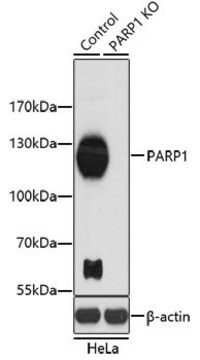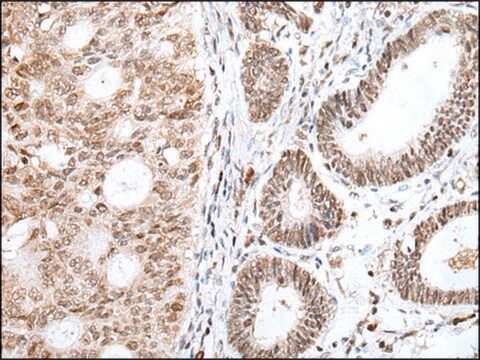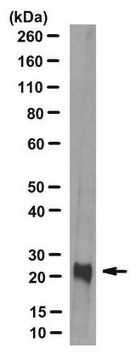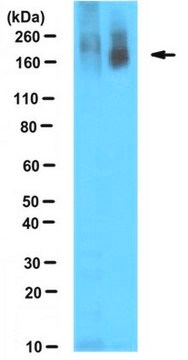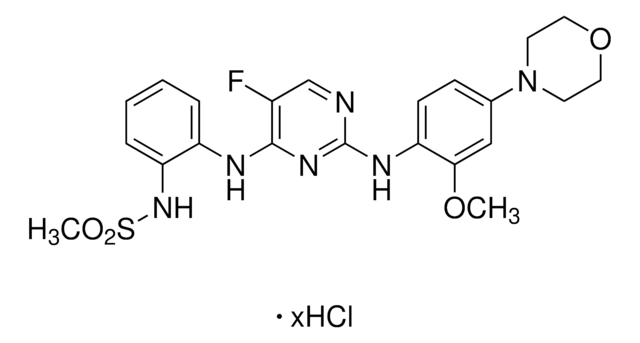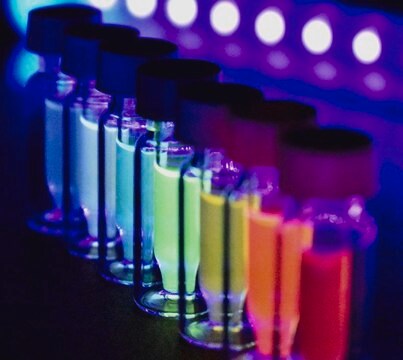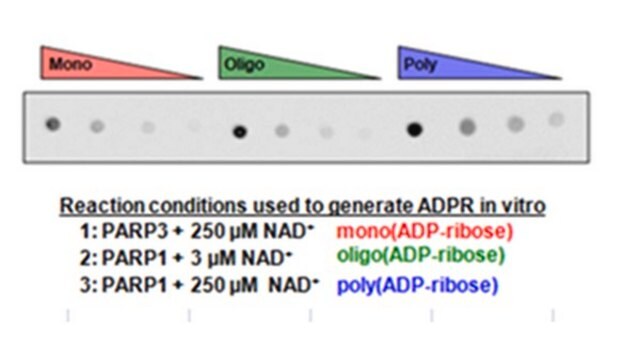ABC217
Anti-GLI1 Antibody
from rabbit, purified by affinity chromatography
Sinónimos:
Zinc finger protein GLI1, Glioma-associated oncogene, Oncogene GLI
About This Item
Productos recomendados
biological source
rabbit
Quality Level
antibody form
affinity isolated antibody
antibody product type
primary antibodies
clone
polyclonal
purified by
affinity chromatography
species reactivity
human, rat
technique(s)
immunohistochemistry: suitable (paraffin)
western blot: suitable
NCBI accession no.
UniProt accession no.
shipped in
wet ice
target post-translational modification
unmodified
Gene Information
human ... GLI1(2735)
General description
Immunogen
Application
Apoptosis & Cancer
Apoptosis - Additional
Immunohistochemistry Analysis: A 1:500 dilution from a representative lot detected GLI1 in human cerebellum and thalamus tissues.
Immunohistochemistry Analysis: A 1:50 dilution from a representative lot detected GLI1 in rat testis tissue.
Quality
Western Blotting Analysis: A 1:250 dilution of this antibody detected GLI1 in 10 µg of A549 cell lysate.
Target description
Linkage
Physical form
Storage and Stability
Disclaimer
¿No encuentra el producto adecuado?
Pruebe nuestro Herramienta de selección de productos.
Storage Class
12 - Non Combustible Liquids
wgk_germany
WGK 1
flash_point_f
Not applicable
flash_point_c
Not applicable
Certificados de análisis (COA)
Busque Certificados de análisis (COA) introduciendo el número de lote del producto. Los números de lote se encuentran en la etiqueta del producto después de las palabras «Lot» o «Batch»
¿Ya tiene este producto?
Encuentre la documentación para los productos que ha comprado recientemente en la Biblioteca de documentos.
Nuestro equipo de científicos tiene experiencia en todas las áreas de investigación: Ciencias de la vida, Ciencia de los materiales, Síntesis química, Cromatografía, Analítica y muchas otras.
Póngase en contacto con el Servicio técnico